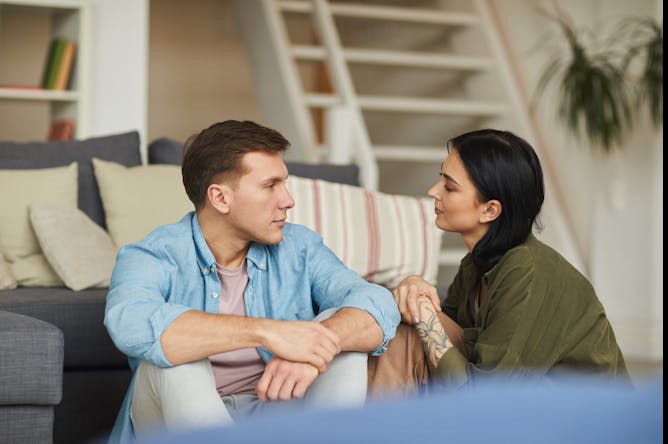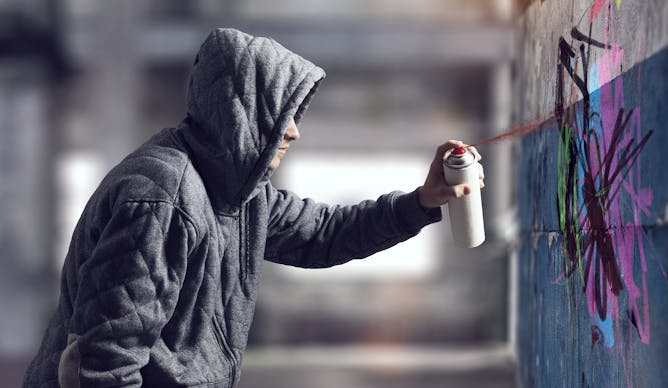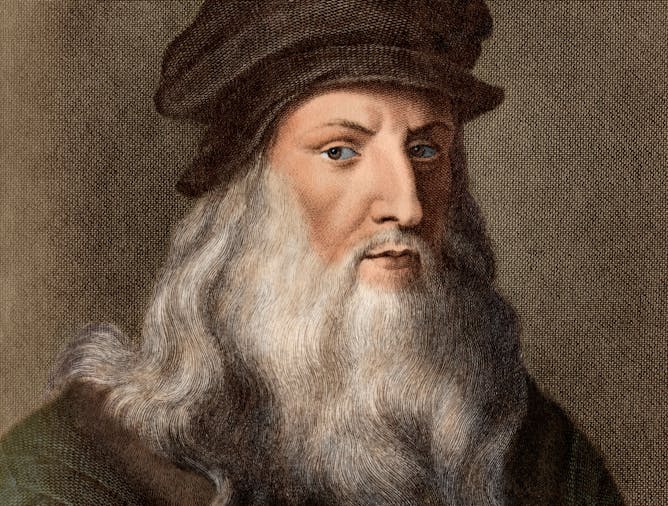|
I don’t know about you, but when I was growing up, sex ed was anything but educational. The only things I actually remember from these classes were perhaps the scarring anecdotes our teacher told us about something that had happened to a friend of a friend — making how accurate this information actually was pretty questionable. Most anything practical I eventually learned about sex and sexuality was from the internet (and that was accompanied by a whole different set of issues and misinformation to untangle).
I know I’m not the only one who feels this way. I’ve had many a conversation with friends and colleagues discussing all the horrible things sex ed taught us — and all the things it failed to. Which is why, for our latest Quarter Life article, we’ve asked sexual and reproductive health lecturer Aine Aventin to tell us what we should have learned in school.
Prime Minister Rishi Sunak has unveiled plans to crack down on so-called antisocial behaviour. But what exactly does that mean? If you’d struggle to define what “antisocial behaviour” actually is, you’re not alone — it turns out no one really knows, not even the people making these policies.
And finally, we discuss how new findings about Leonardo da Vinci’s mother provides greater insight into the practice of slavery in Renaissance Europe.
|

|
Heather Kroeker
Commissioning Editor, Health + Medicine
|
|

It’s important to talk about sex with your partner.
SeventyFour/ Shutterstock
Áine Aventin, Queen's University Belfast
Many people in their 20s and 30s now feel their sex education was lacking when it came to learning things of practical value.
|

Sergey Nivens/Shutterstock
Kirsty-Louise Cameron, Leeds Beckett University
Broad definitions mean almost anything can be classed as antisocial behaviour.
|

Portrait of Leonardo da Vinci.
North Wind Picture Archives/Alamy Stock Photo
Gabriele Neher, University of Nottingham
A document, which dates to 1452, shows that da Vinci’s father emancipated an enslaved woman named Caterina – Leonardo’s mother.
|
Politics + Society
|
-
Parveen Akhtar, Aston University; Timothy Peace, University of Glasgow
The UK is now the only democracy where the children of formerly colonised people are running the country that colonised their parents’ and grandparents’ nations.
-
Richard Sambrook, Cardiff University
Putin’s rhetoric over Ukraine has roots in the end of the second world war, attitudes explained by Paul Winterton, a British journalist at the time.
-
Zanele Nyoni- Wood, Lancaster University
It seems likely that Uganda’s president, who has described homosexuality as ‘disgusting’ will pass this bill into law.
|
|
Arts + Culture
|
-
Penelope Woods, University of Essex
The Globe has used both its theatres in tandem for a single production, for the first time in its history.
|
|
Business + Economy
|
-
Patricia Justino, United Nations University; Kit Rickard, UCL
The UK is among countries cutting international aid payments, which could affect the world in four key areas: poverty, extremism, democracy and refugees.
-
Drew Woodhouse, Sheffield Hallam University
Central banks are reaching into their toolkits to shore up the global financial system.
|
|
Education
|
-
Shaun Thompson, Edge Hill University
Many teachers have reported thinking about leaving the profession.
|
|
Environment
|
-
Anastasia Denisova, University of Westminster
Frightening headlines alone are unlikely to inspire people to change their behaviour.
-
Nick Hacking, Cardiff University; Jamie Lewis, Cardiff University; Rob Evans, Cardiff University
Citizen science offers the possibility of a science for the people, by the people. And it could be used to challenge the status quo.
|
|
Science + Technology
|
-
Geoff Beattie, Edge Hill University
Why you shouldn’t judge a book by its cover: the limitations of reading body language.
|
|
|
|
| |
| |
| |

|
| |
| |
| |
|
|
|
|
| |
| |
| |
| |
| |
|
|